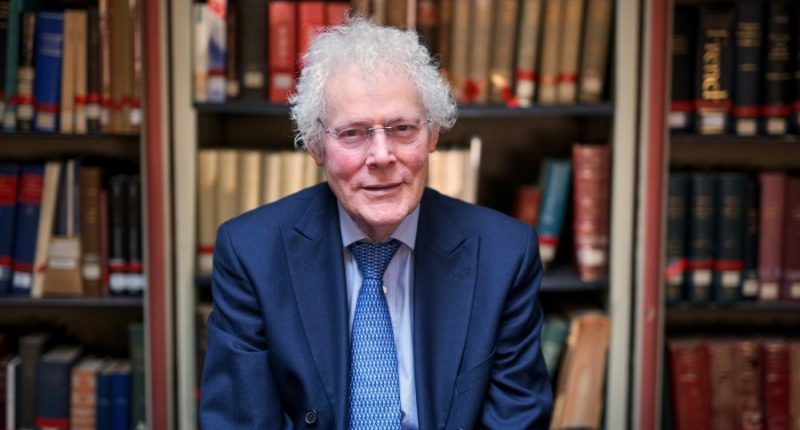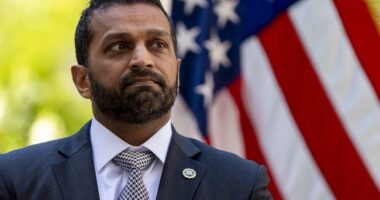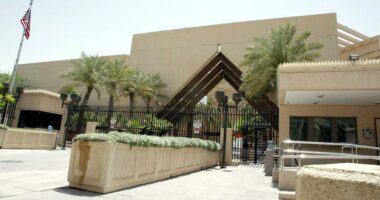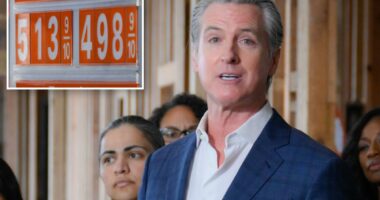Share this @internewscast.com

BOSTON (AP) — For many years, Harvard University believed it possessed a cheap replica of the Magna Carta within its archives, a worn and faded document it acquired for under $30.
But two researchers have concluded it has something much more valuable — a rare version from 1300 issued by Britain’s King Edward I.
The Magna Carta, originally established in 1215, introduced the idea that the monarch is bound by the law, providing a cornerstone for constitutions worldwide. Initially, it was thought that there were merely four copies of the original and only six replicas from the 1300 edition.
“I was utterly amazed and, to some extent, felt a sense of awe at discovering an unknown Magna Carta,” remarked David Carpenter, a medieval history professor at King’s College London. While browsing the Harvard Law School Library’s online resources in December 2023, he stumbled upon this digitized manuscript.
“First, I’d found one of the most rare documents and most significant documents in world constitutional history,” Carpenter said. “But secondly, of course, it was astonishment that Harvard had been sitting on it for all these years without realizing what it was.”
Confirming the document’s authenticity
Carpenter teamed up with Nicholas Vincent, a professor of medieval history at Britain’s University of East Anglia, to confirm the authenticity of Harvard’s document.
Comparing it to the other six copies from 1300, Carpenter found the dimensions matched up. He and Vincent then turned to images Harvard librarians created using ultraviolet light and spectral imaging. The technology helps scholars see details on faded documents that are not visible to the human eye.
That allowed them to compare the texts word-for-word, as well as the handwriting, which include a large capital ‘E’ at the start in ‘Edwardus’ and elongated letters in the first line.
After the 1215 original printed by King John, five other editions were written in the following decades — until 1300, the last time the full document was set out and authorized by the king’s seal.
The 1300 version of Magna Carta is “different from the previous versions in a whole series of small ways and the changes are found in every single one,” Carpenter said.
Harvard had to meet a high bar to prove authenticity, Carpenter said, and it did so “with flying colors.”
Its tattered and faded copy of the Magna Carta is worth millions of dollars, Carpenter estimated — though Harvard has no plans to sell it. A 1297 version of the Magna Carta sold at auction in 2007 for $21.3 million.
A document with a colorful history
The other mystery behind the document was the journey it took to Harvard.
That task was left to Vincent, who was able to trace it all the way back to the former parliamentary borough of Appleby in Westmorland, England.
The Harvard Law School library purchased its copy in 1946 from a London book dealer for $27.50. At the time, it was wrongly dated as being made in 1327.
Vincent determined the document was sent to a British auction house in 1945 by a World War I flying ace who also played a role defending Malta in World War II. The war hero, Forster Maynard, inherited the archives from Thomas and John Clarkson, who were leading campaigners against the slave trade. One of them, Thomas Clarkson, became friends with William Lowther, hereditary lord of the manor of Appleby, and he possibly gave it to Clarkson.
“There’s a chain of connection there, as it were, a smoking gun, but there isn’t any clear proof as yet that this is the Appleby Magna Carta. But it seems to me very likely that it is,” Vincent said. He said he would like to find a letter or other documentation showing the Magna Carta was given to Thomas Clarkson.
Making Magna Carta relevant for a new generation
Vincent and Carpenter plan to visit Harvard in June to see its Magna Carta firsthand — and they say the document is as relevant as ever at a time when Harvard is clashing with the Trump administration over how much authority the federal government should have over its leadership, admissions and activism on campus.
“It turns up at Harvard at precisely the moment where Harvard is under attack as a private institution by a state authority that seems to want to tell Harvard what to do,” Vincent said.
It also is a chance for a new generation to learn about the Magna Carta, which played a part in the founding of the United States — from the Declaration of Independence to the adoption of the Bill of Rights. Seventeen states have incorporated aspects of it into their laws.
“We think of law libraries as places where people can come and understand the underpinnings of democracy,” said Amanda Watson, the assistant dean for library and information services at Harvard Law School. “To think that Magna Carta could inspire new generations of people to think about individual liberty and what that means and what self-governance means is very exciting.”
















